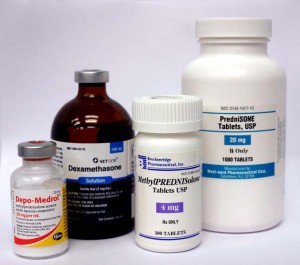Liver transplant rejection, also called organ rejection, is a very serious concern that comes along with liver transplants or other similar procedures. The main cause for rejection is because your immune system attacks the foreign object, i.e. the new liver.
Liver Transplant Rejection Signs
The symptoms and signs of organ transplant rejection include feeling tired all the time, loss of appetite, nausea and vomiting. As the rejection continues, other organ rejection symptoms are observed, such as:
-
Fever
-
Pain in the liver area
-
Change in color of urine. It has a darkish tone
-
The color of your stool becomes pale as bile is not produced
-
Jaundice
These symptoms are commonly observed in most cases. In some liver transplant rejection cases however there may be almost no symptoms of rejection. A liver biopsy is a more definitive way to determine the condition of organ rejection. In a liver biopsy, a small piece of the liver is taken and viewed under a microscope.
If the organ is rejected, then the transplant unit and the doctor will run more tests to see if another transplant would be possible. Once this is confirmed, they will immediately place you on the waiting list. Once the transplant is successfully carried out, you will be shifted to an ICU.
The liver transplant recovery will take time and it is better to stay put in the hospital for three to four weeks at the very least. Once you’re home, there should be no rush to get back to work or to perform household chores. Apply as little stress on the new liver as possible.
Liver Transplant Rejection Management
Immunosuppressants
As the biggest risk to the new liver is caused by the immune system that attacks it, medicines are prescribed to suppress the body’s immune system, thus preventing liver transplant rejection. These medicines are called immunosuppressants. During the first four to five months, there will be a relatively high risk of organ rejection, and this is when the dose of immunosuppressants will be high.
As time goes by, the dosage will either reduce or increase based on how well the new liver is functioning in the body. There are two types of immunosuppressants associated with liver transplants.
Calcineurin Inhibitors
There is a type of white blood cells called T cells, which are used by the immune system to fight off infections. When doing this, the immune system invariably attacks the new liver.

The inhibitors work by shielding the effects of calcineurin, a protein that activates the T cells. Tacrolimus and Ciclosporin are inhibitors which are used widely. They are given either in the form of injections, capsules or tablets.
Tacrolimus Side Effects
Side effects commonly associated with Tacrolimus include:
-
Tremors
-
Sleeping difficulties
-
Rise in blood pressure
-
Loss of hair
-
Seizures
-
Skin rashes
-
Itchy skin
-
Mental fluctuations
-
Diarrhea
Ciclosporin Side Effects
Side effects commonly associated with Ciclosporin include:
-
Numbness in different body parts
-
Vomiting and nausea
-
Chronic headaches
-
Appetite loss
-
Muscle cramps
-
Increase in growth of skin hair
-
Rise in blood pressure
-
Tremors
If you are consuming other medication in addition to these immunosuppressants, it is recommended that you consult your general practitioner or a member of the transplant unit before continuing.
The reaction of the inhibitors with other medicines is not always predictable and can cause catastrophic damage if taken without a consultation.
Corticosteroids
Corticosteroids act by turning off the gene that releases chemicals, which the immune system uses to attack the donated liver. They penetrate the walls of the cells of the immune system.

Prednisolone is the most widely used corticosteroid in the case of liver transplantation rejection. The side effects of prednisolone include:
-
Mood swings
-
Retention of fluid
-
Increase in weight
-
Weakness in muscles
-
Ulcers in throat and mouth
Some people may also develop mental issues when on prednisolone. These may include:
-
Thoughts about suicide
-
Hallucinations (hearing and seeing things which are unreal)
-
Paranoia
-
A state of confusion and unclear thoughts
If you are unsure about the drugs you are taking or have a doubt about the course of medication, consult the surgical team or your medical practitioner immediately.
A study regarding the efficacy of corticosteroids showed that among a select group of 152 patients, 85% who were on them for the recommended doses showed no sign of rejection in the first 72 hours and a 78% probability of having no degeneration in the new liver for a further three months.
You’ll need to stay updated about the many liver transplant rejection signs in order to ensure that management steps are taken right away. Post liver transplant complications must always be checked for once the liver transplant surgery is completed. Always consult your medical practitioner in case you have any doubts or worries.